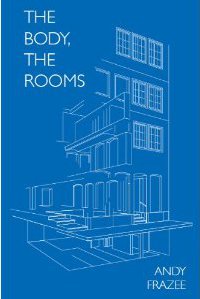An Interview with Andy Frazee
 A literary university press offer exposure for the students; the gap between writer and publisher blurs, has been blurring, as more and more one partakes in the work of the other. Why should an MFA only prepare a person for a profession in teaching? People enroll in ever-growing programs in order to write anyway (right?), not necessarily to teach. Writers, however, thrive with publishers. As mentioned later (in the interview), Ted Berrigan could staple together as many copies of his Sonnets as he likes, but everyone I know owns the copy published by Penguin. Why should this job be left up to a person with a business degree? Expanding an MFA degree to encompass, or at least introduce students to the business of books would not be difficult. Those who write have stakes in that buisness whether or not they are involved, so why not be involved?
A literary university press offer exposure for the students; the gap between writer and publisher blurs, has been blurring, as more and more one partakes in the work of the other. Why should an MFA only prepare a person for a profession in teaching? People enroll in ever-growing programs in order to write anyway (right?), not necessarily to teach. Writers, however, thrive with publishers. As mentioned later (in the interview), Ted Berrigan could staple together as many copies of his Sonnets as he likes, but everyone I know owns the copy published by Penguin. Why should this job be left up to a person with a business degree? Expanding an MFA degree to encompass, or at least introduce students to the business of books would not be difficult. Those who write have stakes in that buisness whether or not they are involved, so why not be involved?
The opportunity to be so involved in a press was exciting. Being part of the working relationship from the inception of making a manuscript into a book was rewarding and something I’m happy to have done. Below is an interview with the 2010 winner for poetry (published in 2011), Andy Frazee, whose book is available on Amazon or SPD.
Other books in 2011 include Alta Ifland’s Death-in-a-Box and Sandra Doller’s Man Years.
More information on Subito can be found on the website.
Stephen Daniel Lewis: One thing that surprised me about The Body, The Rooms was form. Not only that the form steps away from more standard types used in poetry, but the layout morphs section to section; sometimes even within a section the reader will see an evolution of the employed form. It was exciting to see how the usage of space encompasses the content in a way that seems inextricable.
I’m wonder what process led to this? Did the content come first, did it happen the other way around, or was it simultaneous? Also did you have specific reasons in mind for including elements that rarely surface in poetry (such as the explication that undercurrents the poems in the “Cartography” section, and the Dramatis Personae in the section titled “That the World Should Never Again Be Destroyed by Flood”)?
Andy Frazee: In general, content comes before form for me—not in terms of precedence, but in terms of chronology. For the most part, the content first comes in the form of journal entries and notes, which I at some point return to and cull for interesting phrases and ideas. A lot of the language in both “Cartography” and “In this Element of Capture,” for example, came from a series of sketches I’d written trying to re-write Eliot’s “Prufrock.” Both of those sequences have gone through many different formal manifestations, and I think this has a lot to do with my own attempts at trying to restrain an impulse to make the poem too organized, too logical. I often introduce some rudimentary form of chance operations to thwart that impulse—so at a certain point in the evolution of “Cartography” I listed out each individual sentence and dispersed them randomly in four-line sections over several pages. In the end, I go with what my gut tells me works, and that ultimately seemed to.
